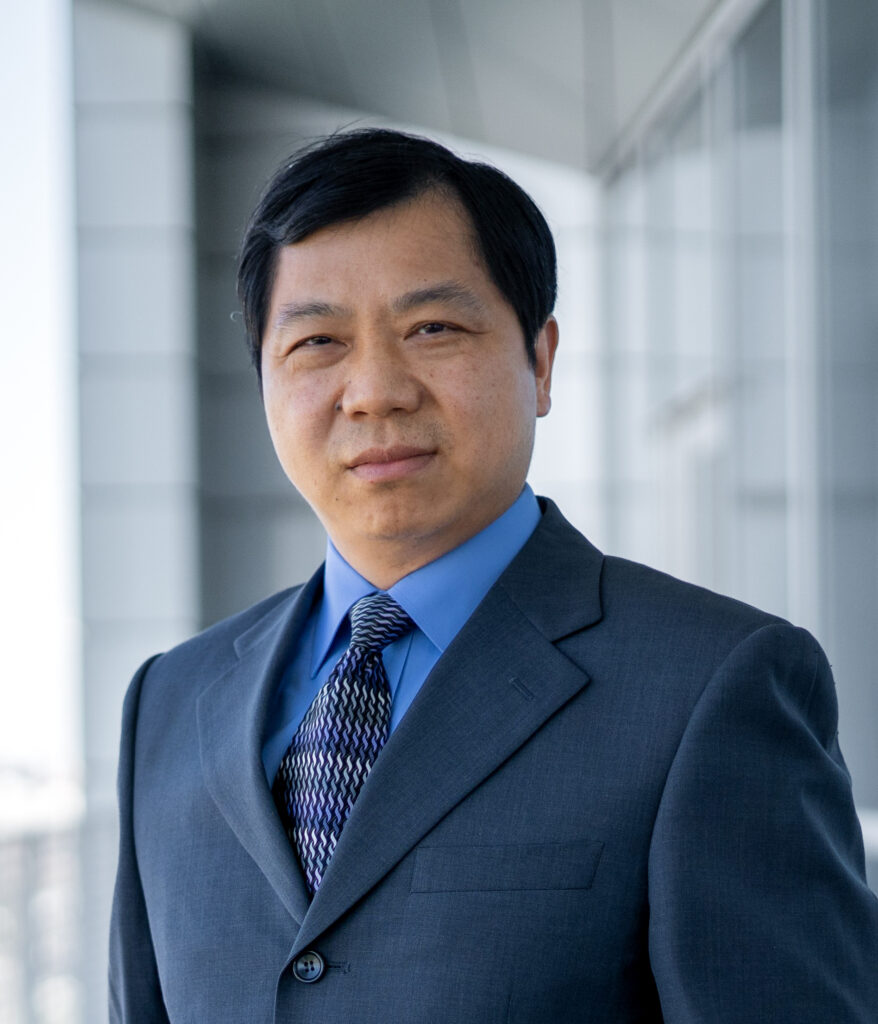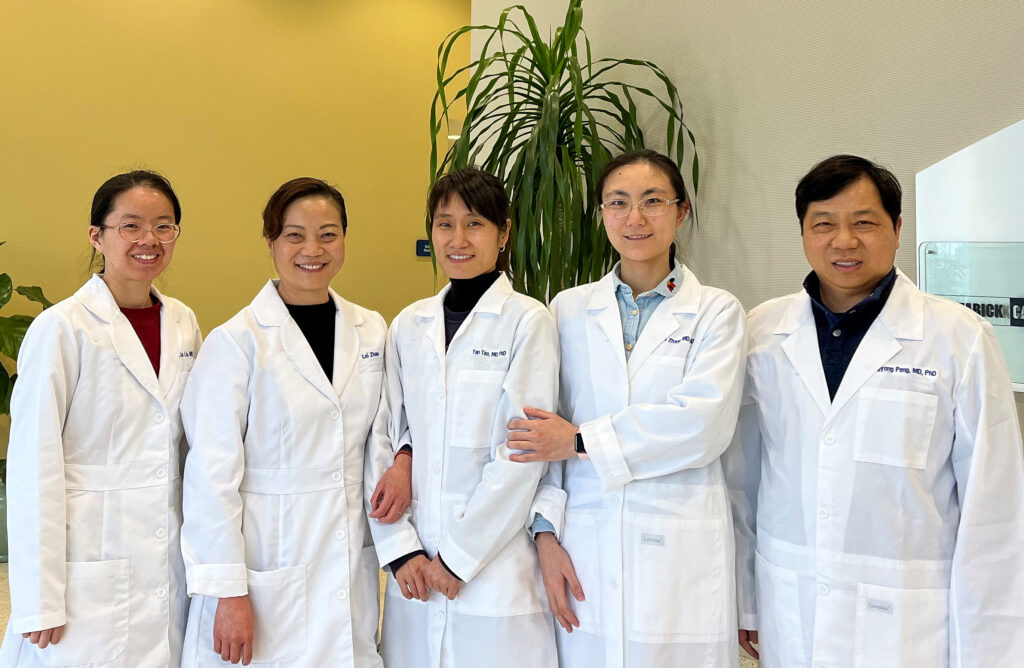Guangyong Peng, MD, PhD, has joined the Division of Head and Neck Cancer, bringing with him highly sought expertise in the field of immunotherapy and suppressive tumor microenvironments. Peng’s research adds to an aggressive expansion of cancer research efforts in the Department of Otolaryngology at Washington University in St. Louis.
Head and Neck Division Chief Sid Puram, MD, PhD, was excited to announce Peng’s arrival.
“We could not be more thrilled for the addition of Dr. Peng to our head and neck surgery division and more broadly to our department,” said Puram. “Dr. Peng will expand our research portfolio to include critical studies of tumor immunology and both traditional and novel forms of immunotherapy. He is among the most funded investigators in the country, and his research is already yielding translatable approaches to improve head and neck cancer care. His research will beautifully complement our ongoing efforts in head and neck oncology research.”

Peng’s lab is actively investigating the role of T lymphocytes or T cells, a part of the immune system that protects the body from infection and may help fight cancer. However, one type of T cell known as a regulatory T cell may actually suppress the normal function of tumor-reactive T cells, providing an unwanted barrier to immunotherapy, a treatment that uses the patient’s own immune system to fight cancer.
Peng currently holds three coveted NIH research project grants (R01) to investigate the role of T cells in a variety of diseases and cancer:
- Targeting T Cell Senescence and Dysfunction for Anti-tumor Immunity
- Metabolic Control of T Cell Senescence in Pathogenesis and Immunotherapy of Alzheimer’s Disease
- Metabolic Control of Innate and Adaptive Immunity in Breast Cancer
Additional current support includes an R21 Exploratory/Developmental Research Grant Award from the NIH and awards from the Department of Defense and Melanoma Research Alliance. The total amount of active research awards exceeds $6.6 million.
Peng received his MD from Jiangsu University School of Medicine in Zhenjiang, China. He also holds a master’s degree in microbiology (Nanjing Medical University) and a doctorate in immunology from Chinese Academy of Preventive Medicine in Beijing. He came to the US as a postdoctoral trainee with the Center for Cell and Gene Therapy at Baylor College of Medicine in Houston. He most recently served as Professor of Internal Medicine-Infectious Diseases at Saint Louis University.
Peng brings with him a talented group of researchers including Assistant Professor Xia Liu, PhD, postdoctoral scientists Yan Tao, PhD, and Yuanqin Zhang, PhD, and Lab Manager Lei Zhao.
“I am overjoyed to join the Department of Otolaryngology at Washington University in St. Louis and expand our focus on tumor immunology and immunotherapy in head and neck cancers,” said Peng. “The department and school of medicine provide an outstanding research environment and state-of-the-art facilities for us to further our cutting-edge research in T cell biology and tumor immunology. Being part of this institution will also facilitate the effectiveness of our interdepartmental and interdisciplinary collaborations. We look forward to working with our new colleagues and department leadership.”
